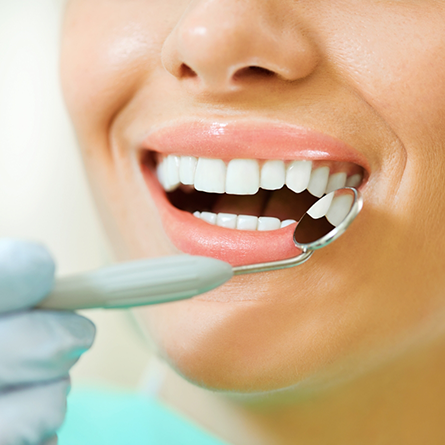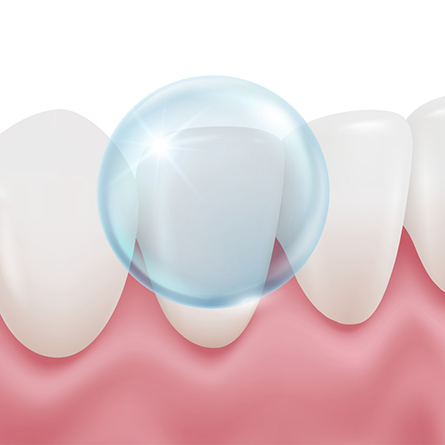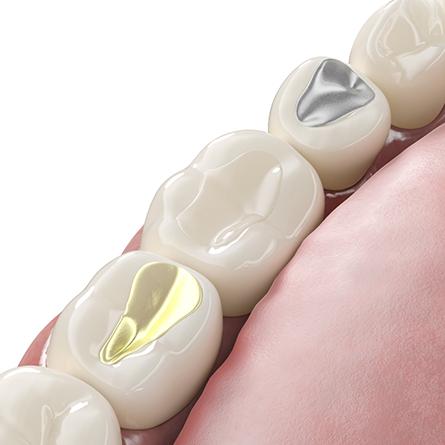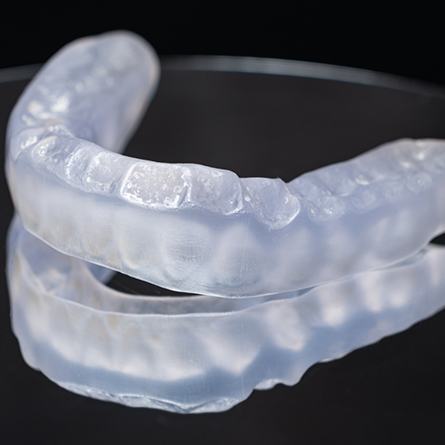Preventive Dentistry Portland
Keeping Your Oral Health on the Right Track

Preventive dental care involves regular dental exams to help protect your oral health and general well-being. It also involves promoting optimal tooth and gum health through patient education of adopting good oral hygiene practices to prevent tooth decay and gum disease. In having good oral hygiene, patients can avoid cavities, gingivitis (inflammation of gum tissue), periodontal disease (gum disease), and enamel loss.
Preventive dental services not only include routine oral exams, X-rays, and teeth cleanings, but also fluoride treatments, sealants, nightguards, and custom sportsguards. At Belmont Family Dentistry in Portland, we offer all of these services, which are aimed at identifying and stopping early dental issues before they can become worse.
Why Choose Belmont Family Dentistry for Preventive Dentistry?
- Over 500 5-Star Reviews on Google
- First-Class, Above-and-Beyond Service
- An Experienced Team of Dentists
Dental Checkups & Cleanings

During your visit, one of our dentists or hygienists will discuss your oral hygiene habits, including proper brushing and flossing techniques, and the effect your medications or use of tobacco products may have on your oral health. We’ll also discuss any topics that are important to you, such as the consequences of tooth loss, the benefits of crowns, the use of dentures, or the benefits of cosmetic dentistry.
During your exam, one of our dental hygienists will clean your teeth, identify any gum inflammation or bone loss, and evaluate your risk of developing tooth decay and other oral health problems. They’ll also check your face, mouth, neck, and jaw for any abnormalities. Your exam may also include 3D digital X-rays (provides complete visual information that allows your dentist to study your case from every angle) or other diagnostic procedures such as an oral cancer screening.
At the conclusion of your visit, your dentist will discuss all your options with you and help you come up with an oral health plan that suits your needs.
Learn More About Dental Checkups & Cleanings
Fluoride Treatment

Fluoride is a naturally occurring mineral that helps prevent cavities in children and adults by making the outer surface of your teeth (enamel) more resistant to the acid attacks that cause tooth decay.
You can use fluoride systematically or topically to benefit your teeth. If you drink fluoridated water or any other fluoridated beverage, you’re getting a systematic benefit since the fluoride is being ingested. The fluoride in the liquids you drink will strengthen your tooth enamel and make it stronger, thereby making it more resistant to cavities.
Using fluoride topically means applying it to the surface of your teeth. This happens when you brush your teeth with fluoride toothpaste or use any other kind of fluoride dental product that is applied to the surface of the teeth.
At Belmont Family Dentistry, we can give you a topical fluoride treatment that will help rebuild weakened enamel and fight tooth decay. While we highly recommend fluoride treatments, they are always optional and voluntary at our practice.
Dental Sealants

According to the American Dental Association (ADA), sealants have been shown to reduce the risk of tooth decay by 80% in molars. This is especially important when it comes to your child’s dental health. In October 2016, the Centers for Disease Control and Prevention (CDC) released a report on the importance of sealants for school-aged children stating that “school-age children without sealants have almost three times more cavities than children with sealants.”
Dental sealants are another preventive measure to fight cavities, especially for the molars where leftover food and cavity-causing bacteria hide in the rough, uneven parts of the tooth. More specifically, sealants are a thin plastic film that our dentists can paint on the chewing surfaces of your teeth to protect them from cavities.
Check out the application process as explained in this video from the ADA. Sealants usually take 15 to 20 minutes to apply, depending on how many teeth you’re wanting to protect. After sealants have been applied, they keep those bits of food out and stop bacteria and acid from settling on your teeth. As long as sealants last, you have a protective barrier that cannot be penetrated to start cavities. Sealants last several years before they wear off, and they are recommended for both children and adults. Of course, the earlier you get them (as soon as your first molars appear around age 6), the better.
Nightguards for Bruxism

If your teeth, jaw or facial muscles are in pain, it might be because you’re grinding or clenching your teeth at night. If you have this problem, one of our dentists might be able to prescribe you a custom-made nightguard. The nightguard — a clear, cushioning device you wear over your upper or lower teeth while sleeping — will protect your two rows of teeth from grinding against each other.
Nightguards won’t only protect you from pain — they’ll also keep your teeth from wearing down. Studies have shown that people who grind and clench their teeth can have up to 80 times the normal tooth wear per day compared to those who don’t suffer from the habit.
Custom Sportsguards

More than 5 million teeth get knocked out each year in sports. What’s the next safest thing to standing on the sidelines? Wearing a sportsguard, of course! This device, which fits in your mouth and covers your upper teeth, is a must if you play any sport where there’s a possibility of experiencing facial trauma. Remember: not all sports that put you at risk for dental injuries are contact sports. Some non-contact sports like skating and gymnastics can cause broken teeth too.
Custom sportsguards protect your tongue, lips and cheek lining, and significantly lessen the risk of broken teeth and mouth injuries. The ADA estimates that over 200,000 mouth injuries are prevented every year because of sports guards. If you wear your sports guard properly, you can decrease your risk of injury by 99 percent.
Lots of sporting good stores offer mouthguards, but these versions aren’t as effective as the custom-made ones by our team. Store-bought mouthguards can’t be altered; plus, you have to clench your teeth so they’ll work the right way. We can customize the sports guard by using an exact duplicate of your mouth. The guard will stay put with no effort, and you can wear a comfortably-fitting piece that shields your teeth from harm while you keep your attention where you want it: on your game.
Children’s Dentistry

We’re proud to see your entire family for their dental care needs, including appointments for your children and adolescents! During these exams, your dentist or one of our hygienists will likely discuss your child’s diet and oral hygiene habits. They’ll also demonstrate proper brushing and flossing techniques to make sure your child or adolescent is getting the most out of their at-home cleanings. Other topics for discussion might include preventing oral injuries and the health risks involved with tobacco, substance abuse, and oral piercings.
Preventive Dentistry FAQs
Why Is Preventive Dentistry Necessary?
Good oral health is important, and proper, preventive dental care helps patients avoid or lessen the effects of developing dental problems in the future.
Preventive dentistry also helps educate patients on the importance of good oral health. Since the mouth is a breeding ground for harmful bacteria, it is essential to maintain a clean mouth to benefit your overall health. Maintaining good oral health greatly reduces your risks of getting cavities, gingivitis, periodontitis, and further reduces your risks of developing secondary health problems (e.g., diabetes, heart disease, osteoporosis, respiratory disease, cancer) due to poor oral health.
What Is Considered Good Oral Hygiene?
It is important to develop and maintain good oral hygiene to keep your teeth healthy. Here are some tips on caring for your teeth:
- Brush your teeth daily with fluoride toothpaste
- Replace your toothbrush three to four times a year
- Brush your tongue to remove bacteria from your mouth and help freshen your breath
- Floss daily
- Limit your sugar intake
- Visit your dentist
Why Is It Important to Limit Sugar Intake?
You should limit your sugar intake because sugar is harmful to your teeth. Cavity-causing bacteria in the mouth feed on sugar and produce acids that attack tooth enamel. It is, therefore, important to eat a well-balanced diet and limit between-meal snacking for a healthy mouth.
Which Toothpaste Is Best to Use?
The American Dental Association (ADA) recommends that when selecting a toothpaste, look for the ADA Seal of Approval on the box. The seal helps make sure you are choosing the best toothpaste for your dental needs. It is also an assurance that the toothpaste has met the ADA criteria for safety and effectiveness, and that it does what it says.
